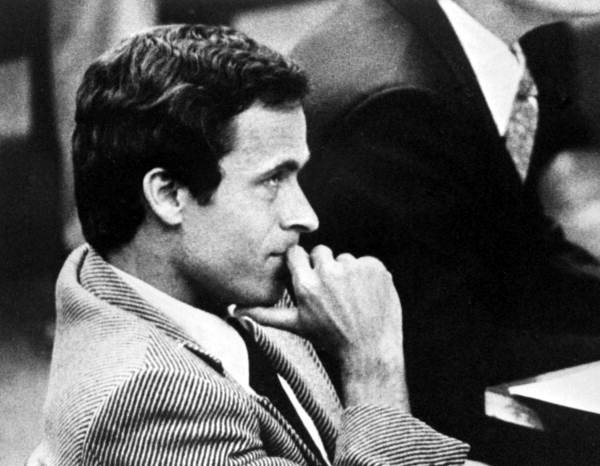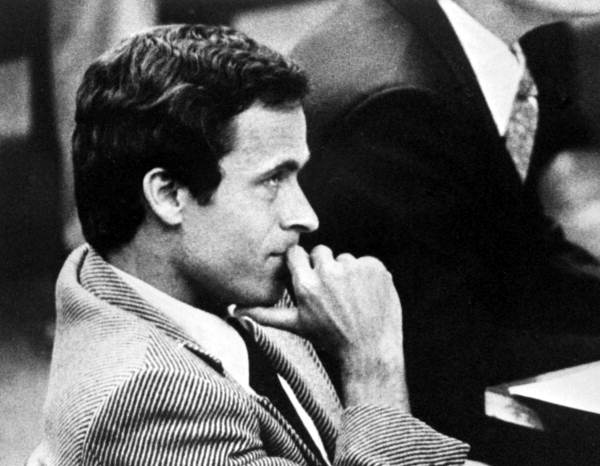Beautiful production juxtaposes the evil of a serial murderer in Netflix documentary

Ted Bundy, your friendly neighborhood serial murderer.
A coworker. A neighbor. A fellow classmate. The person you sit next to in church on Sunday. They could all be Ted Bundy.
His personality and lack of motive is exactly what makes serial murderer Ted Bundy so terrifyingly interesting to many.
In the first episode of the Netflix documentary, we’re introduced to the beginning workings of Bundy’s murderous escapade in Washington in the 1970s.
Journalist Stephen Michaud is in charge of getting the story that Bundy wants to tell, which happens to be a sort of celebrity spotlight. He insists that he is innocent.
“People perceive me differently from how I perceive myself, and I need to give others a chance to know what was really going on. What it was really like for me,” Bundy said during the interview with Michaud while discussing the story that he wanted to tell.
The only person thus far who calls out Bundy on his lies is one of his former childhood friends, Sandi Holt. She is the only one who could see him for what he was — an outsider that would one day commit one of America’s greatest tragedies.
During Michaud’s interview with Bundy, it’s obvious that he has an idealized version of his childhood in his memories. If you look beneath the surface, it’s clear that he never fit in and would never be able to fit in.
Only when Michaud gets Bundy to talk about the murders of several college-aged women does he begin to reveal what sort of person could commit these acts — someone who is unfulfilled.
It’s clear that as a child, Bundy missed out on being exceptional, and committing these murders would fulfill that need. These murders were something he could take pride in because he was so good at committing them.
When discussing Bundy’s days in political activism, Marlin Lee Vortman said Bundy easily fit in and was incredibly likable. If he was as arrogant and standoffish as he was perceived to be, I find this hard to believe.
Bundy was only trusted and well-liked because he was handsome and personable — far from the typical disturbed image we have in our heads when we hear the words “serial murderer.”
“People perceive me differently from how I perceive myself.”
-Ted Bundy
For someone to be a serial murderer they have to have distinct characteristics that define them as such — an unattractive, creepy, middle-age man that lives in his parent’s basement and who was severely abused as a child.
Bundy was far from that, and that’s what made him so horrific.
Using clips of old photographs, tape recorders and interviews with those closest to Bundy, Netflix created an atmosphere for the viewer in which they can feel they are part of the investigation that took place — as if they really knew him.
Like Holt, it’s easy for me to see Bundy for who he was, not the facade that he wanted others to see. He was a handsome man with an ugly mind.
The second episode is titled “One of Us.” And that’s exactly how society saw Bundy, which proved fatal for so many.
From the outside looking in, it seems so blatantly obvious that Ted Bundy is the “Ted” the police are looking for. But of course, I wasn’t there and the investigation was taking place throughout the 1970s.
Of course, we can’t forget that nothing like this had ever happened before, so people had to scramble to figure out exactly what needed to be done.
The fact that his own girlfriend, Elizabeth Kloepfer, called the police with suspicions of coincidences that didn’t add up and they still didn’t bring him in for an interview is haunting.
No one likes to think the law student without any criminal background could possibly be capable of such heinous acts.
Truly, Bundy was able to get away with these murders in so many different parts of the country due to faults in law enforcement and lack of technology.
His escapes in Aspen, Colorado were purely for attention from that of the media and from the increased security placed upon him after he was caught the first time.
With each episode documenting every monumental step of Ted Bundy’s story so well, Netflix deserves a round of applause.
When Carol DaRonch told her story of barely escaping Ted Bundy, my heart was pounding. Her story made everything come true. I thought to myself, “This really happened.”
As a viewer, I was taken back into the days of Ted Bundy. The thought of him being pleased by the attention he would be receiving with this documentary is sickening.
The more you see and hear of Bundy, the more disturbing he appears to be. He may very well be the greatest evil genius of our time.
